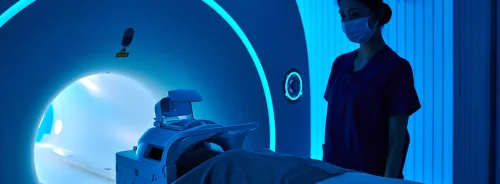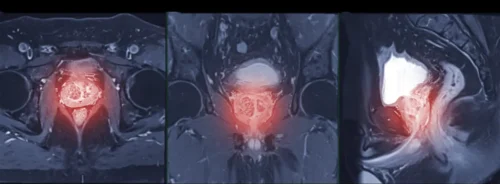HealthManagement, Volume 25 - Issue 3, 2025
Düsseldorf has become a significant hub for health and medical conferences, combining top hospitals, research centres and international events like MEDICA and REHACARE. Its strong infrastructure, central location and support from the Convention Bureau make it easy to host successful events. With excellent transport, diverse hotels and a high quality of life, the city offers a seamless experience for organisers and delegates alike. Sustainability and digital tools strengthen its future outlook.
Key Points
- Düsseldorf hosts major medical events, such as MEDICA and REHACARE, every year.
- The city offers top hospitals, research centres and over 3,000 practising doctors.
- Excellent transport links make travel easy by air, train or road.
- The Convention Bureau supports organisers with planning and local connections.
- Modern venues, green projects and digital tools ensure future-ready events.
Introduction
Düsseldorf may be best known for its fashion and riverside promenades. Still, over the last twenty years, it has also become one of Europe’s busiest meeting spots for doctors, researchers, and life science companies. The city’s growth in health care is no accident. Local hospitals, the university, and city leaders have worked together to attract major medical trade fairs, build first-class venues, and make travel easy. Today, Düsseldorf hosts events like MEDICA and REHACARE, which draw tens of thousands of visitors from all over the world, showcasing why the city has become a strong choice for health and medical conferences.
A Strong Health and Life Sciences Scene
Düsseldorf sits in North Rhine-Westphalia, Germany’s most populous state. The region has long been home to chemical and pharmaceutical firms, so the move toward health care innovation made sense. The local university, Heinrich Heine University, now runs respected programmes in molecular medicine, digital health and biotechnology. Students often conduct hands-on work in nearby hospitals or start-ups, so new ideas leave the lab and reach patients quickly. Venture capital funds and government grants help young companies stay in the region, creating a steady flow of fresh research topics for conference agendas.
Hospitals, Clinics and Doctors
Numbers paint the picture: the city offers 15 large, multi-disciplinary hospitals, more than 80 specialist clinics and over 3,000 practising doctors. That density means almost any medical field, from heart surgery to dermatology, has local experts who can speak at events or run live workshops. For conference planners, finding keynote speakers or arranging on-site medical support is simple because the talent pool is right next door. Delegates also take comfort knowing that high-quality care is available should they need it during their stay.

Big Medical Conferences Choose Düsseldorf
Two events show the city’s pulling power. MEDICA is the world’s biggest medical trade fair. Its most recent edition filled seventeen halls, hosted about 5,300 exhibitors and welcomed more than 80,000 professional visitors. Six weeks later, REHACARE arrives, bringing nearly 1,000 exhibitors and approximately 40,000 visitors focused on rehabilitation and assistive technology. Running shows at this scale proves that Düsseldorf’s transport links, hotels and event staff can handle heavy crowds without breaking stride.
Easy to Reach from Almost Anywhere
Location is half the battle for a successful meeting. Düsseldorf wins here. The international airport (code DUS) lies just three kilometres from the main trade fair grounds. It connects to roughly 200 destinations in 50 countries and offers direct trains to the city centre that take about twelve minutes. High-speed ICE trains place Cologne only 22 minutes away and link directly to Frankfurt, Berlin, Amsterdam and Brussels. Major motorways surround the city, allowing freight trucks carrying exhibits to arrive on time for unloading. All this means less travel stress for delegates and lower shipping risk for exhibitors.
Congress Center Düsseldorf (CCD)
Sitting beside the Rhine and next to the main Messe halls, the Congress Center Düsseldorf serves as the city’s main engine for conferences. Forty-one flexible rooms, multiple foyers with daylight and a total capacity of 7,500 delegates (expandable to over 20,000 when nearby halls are added) make it possible to host everything from small symposia to giant plenary sessions: Fast Wi-Fi, in-house streaming studios, and on-site medical teams round out the package. Organisers can switch room layouts overnight, so breakout tracks, poster areas and networking lounges appear exactly where they are needed.
Plenty of Places to Stay
A significant event requires a large number of beds. Düsseldorf boasts around 35,000 hotel rooms, spread across more than 250 properties. Options range from five-star hotels on the stylish Königsallee to budget-friendly chains near the airport. Busy weeks like MEDICA can push occupancy high, but the Convention Bureau’s partnership with travel firm Kuoni Tumlare Congress keeps prices under control. Their online tool, Hotelmap, displays live room rates and allows attendees to book quickly, filtering by distance, star category or price. Less time hunting for a room means more time focusing on science.
Quality of Life Counts
Delegates judge a conference not only by its sessions but also by the city in which it is held. Düsseldorf scores well in terms of safety, cleanliness, and public transportation. The riverfront promenade offers sunset walks, and the historic Altstadt—sometimes called “the world’s longest bar” because of its many pubs— is a favourite spot for informal networking. Food lovers enjoy a diverse range of dishes, from hearty Rhineland specialities to sushi, thanks to Germany’s largest Japanese community. Many visitors extend their trip by a day or two to explore, thereby boosting local tourism spending and attendee satisfaction scores simultaneously

A City That Welcomes Everyone
Düsseldorf’s diverse population makes it an ideal location to host international groups. Event signs are displayed in both English and German, and professional interpreters are available to cover languages such as Mandarin, Arabic, and Spanish. Venues offer prayer rooms, kosher or halal catering options, and facilities for individuals with disabilities. For example, tram stops have low floors and tactile paving, and the Messe grounds include ramps, induction loops and wheelchair friendly restrooms. These touches help all delegates feel comfortable and respected.
A Green Future: The EUREF Campus
Sustainability is high on the agenda for modern meetings, and Düsseldorf is taking clear steps. The new EUREF Campus Düsseldorf will be an 80,000 square metre innovation quarter that operates entirely carbon neutral. It utilises lake water cooling, rooftop solar panels and smart energy grids. When finished, the campus will host approximately 4,000 workers from clean tech and health-tech firms. Conference organisers can book tours of the site or hold sessions there to highlight green solutions in hospital design, medical logistics and digital health.

How the Düsseldorf Convention Bureau Helps
Behind every smooth event is a team that knows the city inside out. The Düsseldorf Convention Bureau (DCB) offers free advice on choosing venues, setting budgets and drafting bid documents. Once an event is confirmed, the bureau helps arrange public transportation passes, connects planners with local experts and even provides templates for marketing materials. Once a year, the bureau hosts the Health Marketing Forum, where hotels, PCOs and hospital managers share tips and updates. This open exchange means lessons from one event quickly improve the next.
Digital Tools Make Planning Easier
DCB’s tie-in with Hotelmap creates real-time dashboards that show how quickly room blocks are selling, which countries’ delegates are coming from, and whether more budget rooms are needed. Organisers can adjust marketing focus or open extra room blocks early, avoiding last-minute scrambles. After the event, detailed reports list actual arrivals versus registrations and estimate the show’s economic impact— solid figures that help justify budgets for future editions.
Why Organisers Keep Coming Back
Running a medical conference is a complex puzzle of freight, visas, Wi-Fi demands and health regulations. Düsseldorf reduces those headaches. Customs agents with fair ground offices handle ATA Carnets in hours, not days. On-site clinics, staffed by local doctors, manage minor injuries during events. The city’s compact layout means that most hotels, restaurants, and social venues are within a 20-minute tram ride. That saves money on shuttles and frees up evenings for networking dinners on river boats or rooftop terraces.

Looking Forward
The city is not standing still. A half-billion-euro upgrade of the Messe South Entrance will feature timberhybrid construction, improved rainwater collection and increased daylight. The Convention Bureau is testing a “digital twin” of the city, utilising data from past events to model future delegate flows, identify pinch points and enhance security planning. As hybrid meetings evolve—with remote delegates joining through VR headsets or telepresence robots—Düsseldorf’s strong fibre network and 5G rollout will make high-quality streaming reliable and affordable.
Conclusion
Düsseldorf’s promise is clear: world-class medical expertise, excellent transport links and a city that treats visitors like neighbours. Its dense cluster of hospitals and research labs ensures rich scientific content. Its airport, trains and motorways make travel painless. Its hotels, restaurants and river views turn work trips into memorable experiences. Add the hands-on support of the Convention Bureau, and it becomes easy to see why so many health and medical conferences now call Düsseldorf home.
By choosing Düsseldorf, organisers spend less time fixing problems and more time advancing science. Delegates spend less time in traffic and more time sharing ideas. Everyone goes home with new knowledge and good memories— and that is what great conferences are all about.
Conflict of Interest
Spotlight articles are the sole opinion of the author(s), and they are part of the HealthManagement.org Corporate Engagement or Educational Community Programme.







